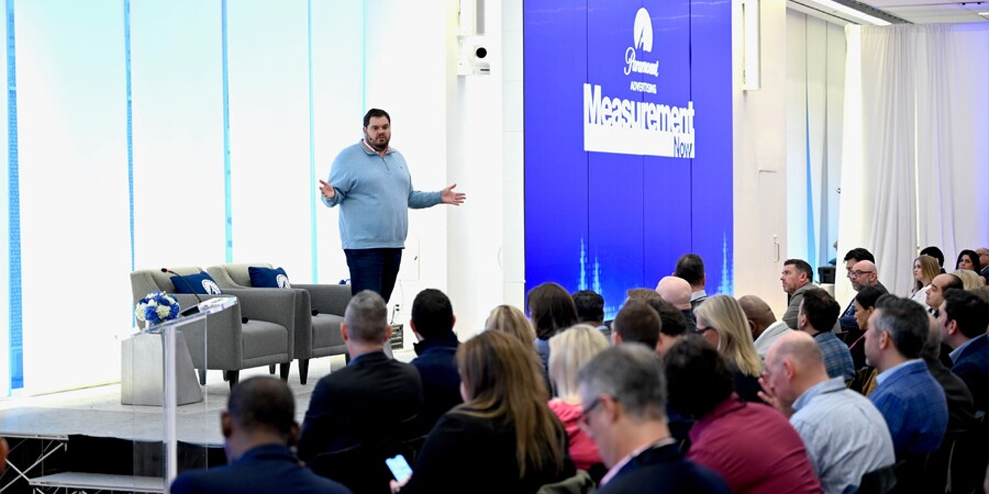The AI-powered marketing content firm says AI, hyper-personalization and big data give marketers powers that should be used more responsibly.
It’s time for advertisers to emphasize positive emotions.
That’s the battle cry issued Wednesday — on World Mental Health Day — by London-based Phrasee. Founded in 2015 and based in London, the company uses AI to automatically craft and optimize email subject lines and other marketing text.
“At the heart of the [Emotions Matter] initiative,” the company said in a statement, “is a desire to remove some of the stigma around mental health and ensure marketers do not exploit it.”
Why now? In particular, Phrasee is protesting against what it sees as “spurious tactics to get people to buy more stuff,” driven by the fear or greed promoted by some kinds of ads or other marketing material.
“If these messages are making people feel afraid and anxious or inspiring greed, this has a real impact on mental health,” the company said.
CEO Parry Malm told me he recognizes that marketing and advertising are “inherently” propelled by emotions, but the overriding rule should be: “Don’t sacrifice customers’ mental health for short-term gain.”
Why now? Negatives and guilt have been used in promoting new releases at least since Moses pointed out all those “thou shalt not’s” in the Ten Commandments.
But now, Phrasee says, AI, big data and hyper-personalization are exponentially more powerful tools for manipulating human emotions than ever before.
In other words, it’s a different ballgame. Marketers have been given the equivalent of nuclear power, and have to decide if they will use it to power cities — or blow them up.
“Two reasons to buy things.” To help focus the issues, the Emotions Matter campaign is being launched with a starter guide on “ethical marketing.”
In the PDF, Malm recalled that one of his first bosses told him something “that really depressed me.”
“There are two reasons people buy things,” she said. “Those reasons are guilt and anxiety.” That approach can be effective, he acknowledged, but it is predicated on “making people feel fearful, inadequate or guilty.”
“Once a brand starts focusing on guilt, anxiety or fear to sell its products, the potential impact on consumers — particularly those in fragile mental states — simply isn’t worth it.”
Other best practices. The Ethical Marketing guide also adds a few other best practices to the one for avoiding the use of fear, anxiety or guilt.
Don’t make false claims or conceal important information, it advises. And don’t bad mouth rivals.
Phrasee itself has never “intentionally used fear or anxiety,” Malm told me, and now it has released its own AI Ethics policy to help codify its approach. The policy includes promises not to use data to target vulnerable populations, not to promote the use of negative emotions to exploit people or not to work with companies whose values don’t align with its own.
Malm told me that Phrasee undertakes a review process of all potential customers, and has turned down some opportunities because of a values mismatch, such as with gun/weapon retailers or companies promoting hate speech.
Its partners for this Emotions Matter campaign include Hilton Worldwide, Virgin Holidays and Ogilvy.
Why this matters to marketers. In recent months, such trust-based technical issues in marketing as ad viewability, non-human viewers and hidden costs in the ad ecosystem have been joined by ones relating to credibility, such as unauthorized use of personal data, fake social accounts and deep fake videos. The issue of trust in marketing was raised by various speakers in our MarTech Conferences last spring and earlier this month.
The Phrasee effort formalizes another front, about whether marketers have obligations — or are missing opportunities — to use their extremely powerful new tools to appeal to customers’ better selves.
A key question left unanswered by Malm and Phrasee is whether all marketing that emphasizes negative emotions is bad, or whether it is only negative marketing that inappropriately makes people feel bad.
For instance, if you want to reach voters in a political campaign who think Donald Trump is unfit to be U.S. President and therefore threatens your family’s safety, what is wrong about pointing that out in a TV commercial? Voters talk all the time about how they want positive campaigns, but they respond to negative campaigning, it helps define candidates and it can sometimes be entirely truthful.
Malm said his company avoids that dilemma by not touching political campaigns.
But similar questions relate to product marketing. Mouthwash can be marketed as a way to avoid bad breath, which is in fact what it does, and the campaign that wants to represent the effects of bad breath might also point out that bad breath can affect friendships.
In Phrasee’s view, however, mouthwash should be marketed as a way to brighten your breath and win friends. It’s definitely more positive, and not deceiving, but it doesn’t necessarily have the same force to compel you to get up and make the purchase.
Malm said he wasn’t sure about the next steps in his company’s ethical campaign, although he hopes it helps propel “a groundswell of support.” In any case, he’s sure it will benefit Phrasee because consumers are already on board.
“Consumers aren’t stupid,” he said, adding that “they will tune out messages” that continually make them feel bad.
–
This article first appeared in www.martechtoday.com
Seeking to build and grow your brand using the force of consumer insight, strategic foresight, creative disruption and technology prowess? Talk to us at +9714 3867728 or mail: info@groupisd.com or visit www.groupisd.com



